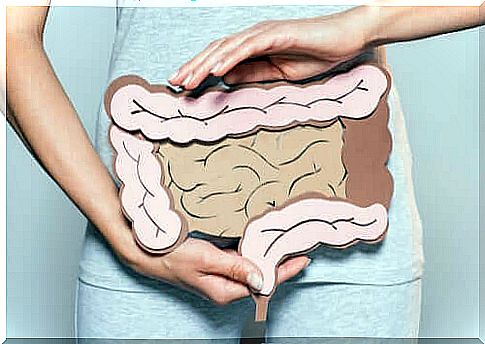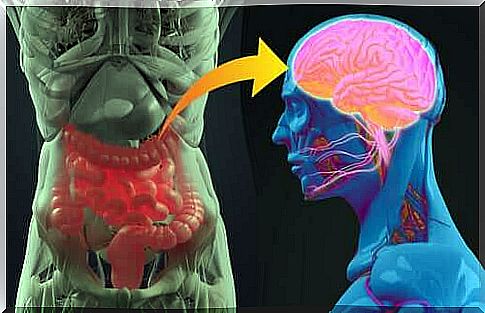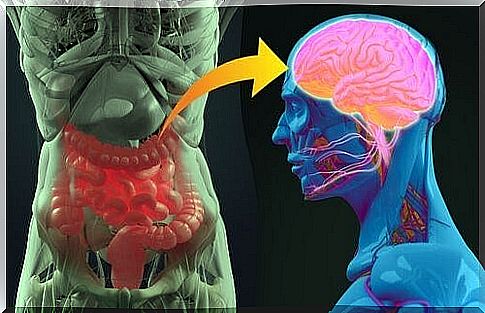Mental Digestion: The Key To Bowel Problems

The digestive system is one of the most easily reactive to emotional states. It is not uncommon for a person to be overly impressed and vomit, or to feel nervous and have stomach pain. For this reason, and given the widespread problem of slow bowel movements, the concept of mental digestion has emerged.
Today, we know that there is a very close connection between the gut – its health and function – and the brain. It is not uncommon to speak of the intestine as the “second brain”. The intestine is the only organ in the body that functions completely independently. In short, it does not need the permission of the brain to perform its functions.
The intestine obeys the enteric nervous system (ENS), which is a derivation of the autonomic system. It has its own neural circuits. However, it communicates with the brain through the sympathetic and parasympathetic systems. This complex structure establishes a special link between the mind and digestion, hence the term mental digestion.

Mental digestion
A very close relationship has been detected between the digestion of thoughts and emotions and that of food. It is very common for unassimilated experiences in the mind to end up making it more difficult to properly assimilate food. You could say that good mental digestion also depends on good intestinal digestion.
At the same time, the reverse process occurs: digestive problems end up visibly changing our state of mind. This is largely due to the fact that the digestive system processes 90% of serotonin, compared to only 10% for the brain.
Remember that serotonin is a neurotransmitter that has significant effects on our mood. A high level of serotonin means a happy state. A low rate, a depressive state of mind.
As you can see , there is a clear link between mental digestion and the digestion of food. One influences the other and they determine each other.
Constipation and mental digestion
One of the problems most associated with poor mental digestion is constipation. It is interpreted as a sign that there are ideas, emotions or experiences from the past that are “blocked”. What happens in this case is that a person clings to this situation and refuses to let go.
It is very common for people with constipation to spend a lot of time rehashing something from the past without letting go. It can be a belief, a purpose, a wound, a material object.
The point is that it keeps coming back, without any progress being made. So it can be said that constipation is typical of those who tend to be obsessed.
Sometimes constipation is also linked to unspoken words. The person has stopped expressing what they think or feel out of fear or convenience, but the silence begins to become self-punishment which results in this digestive problem. This ailment is also very common among those who always want to accumulate more because of unfounded fears about the future.

Diarrhea and emotions
Australian gut health specialist Dr Megan Rossi says one of the first factors she sees in patients with gut problems is their stress levels.
She also points out that one of the prescriptions for those who come to see her for digestive problems is to do 10 or 15 minutes of meditation per day. This ends up having very beneficial effects on their health.
Diarrhea is associated with the sudden rejection of an idea or feeling you have experienced or a decision you have already made. The mind responds by trying to expel it as quickly as possible and this is reflected in the body as a constant evacuation. In other words, improper mental digestion ends up resulting in poor intestinal digestion.
Diarrhea, both mentally and physically, is the opposite of constipation. In this case, there is a willingness to quickly throw something away because it generates rejection and guilt. The person does not want, cannot, or does not know how to accept this part of himself, which ends up being expressed in a physiological way.
For all of these reasons, it is worth paying a little more attention to our digestive symptoms. They can often be the representation of some emotional discomfort. It is about exploring and identifying what we cannot assimilate… then to do a good mental digestion.










